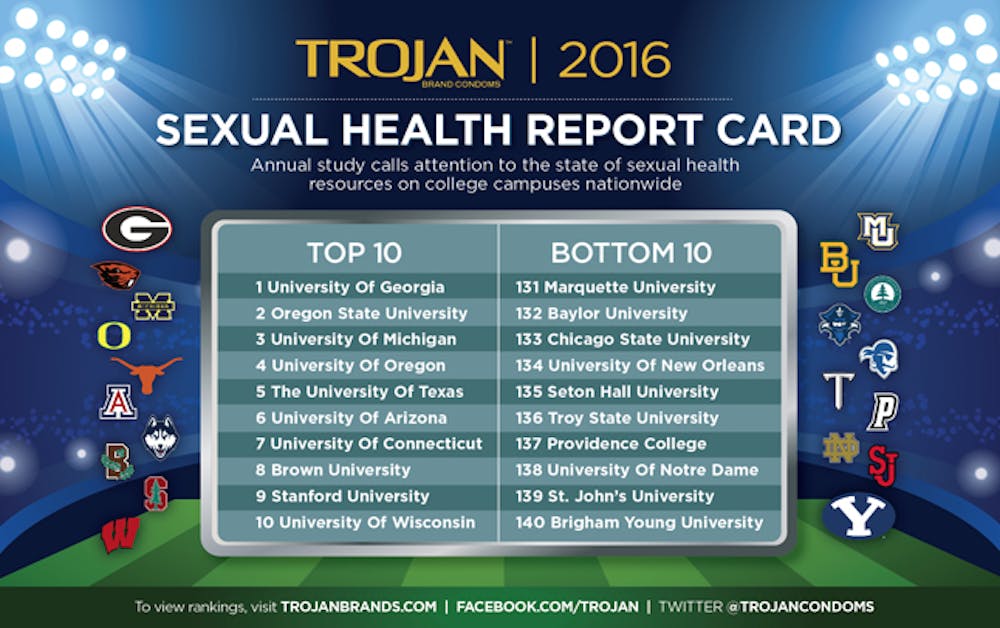Ball State has once again dropped in the rankings for the Trojan Sexual Health report card, but heath educator Elizabeth Peeler isn’t too concerned about that.
Because sexual health has become such a priority for universities, she believes most schools are just improving their programs faster than Ball State is, mainly because they have a full-time staff devoted to just that.
Ball State was ranked 48th this year out of 140 universities, down five spots from 2015.
In the past six years, Ball State’s ranking has been declining. Just five years ago in 2011, the university was 16th in the nation.
But Peeler, whose background is in sexual health education, has been working to make sure all students know about the resources Ball State offers. She’s been working with peer health educators to figure out how students get their information.
“My goal is to get us to a better ranking,” Peeler said. “I’m a sexual health educator by training, so this is my passion.”
The Trojan ranking is based on:
- The quality of sexual health information and resources available on the school's website
- Contraceptive availability
- Condom availability
- HIV testing
- Sexually transmitted infection testing
- Lecture and outreach programs for sexual health education
- Sexual assault programs and resources
- Hours of operation
- The overall usability and quality of the website
- Allowance of drop-ins for student scheduling, or if they require appointments
The university offers free condoms in the Office of Health, Alcohol and Drug Education and Lucina Hall, and now offers free HIV testing every week in the Amelia T. Wood Health Center. They also offer testing for other STIs, but for a fee.
Ball State has been trying to expand on the type of condoms offered to try to reduce the stigma against condoms.
“I knew from my previous experience at the University of South Carolina that you have to get students excited, make it flashy, in a way, to make students go 'hey, like this is something I should look into,'” Peeler said.
Because Indiana is an abstinence-only state, Peeler said many students come to college not knowing much about sexual health.
Peeler said her colleagues in the Office of Health, Alcohol and Drug Education have seen a big influx in students coming in to get condoms, which makes her happy.
Around 5 percent of Ball State students have chlamydia, genital herpes, genital warts, gonorrhea or HIV, according to the 2015 American College Health Association-National College Health Assessment.
Because using condoms can reduce the chance of catching or transmitting an STI, Trojan will be donating more than 100,000 condoms to schools across the U.S. in 2016, according to a press release.
Since the first report on sexual health in 2006, Sperling’s BestPlaces, an independent research firm, said it has seen huge improvements in the amount of information and resources provided by the universities.
“It’s our feeling that the Trojan Sexual Health report card is a key reason why students are getting better information and resources,” Sperling's said in a press release. “Students have used the Trojan rankings to approach their administration and make a case for better resources and services.”
University of Georgia topped the rankings, and Sperling's attributed that to their commitment to availability of contraceptives, HIV and STI testing and “superior” health resources on campus.
This year, Indiana University was ahead of Ball State once again in the rankings, placing 32nd. Purdue University ranked 84th and IUPUI was 70th.





